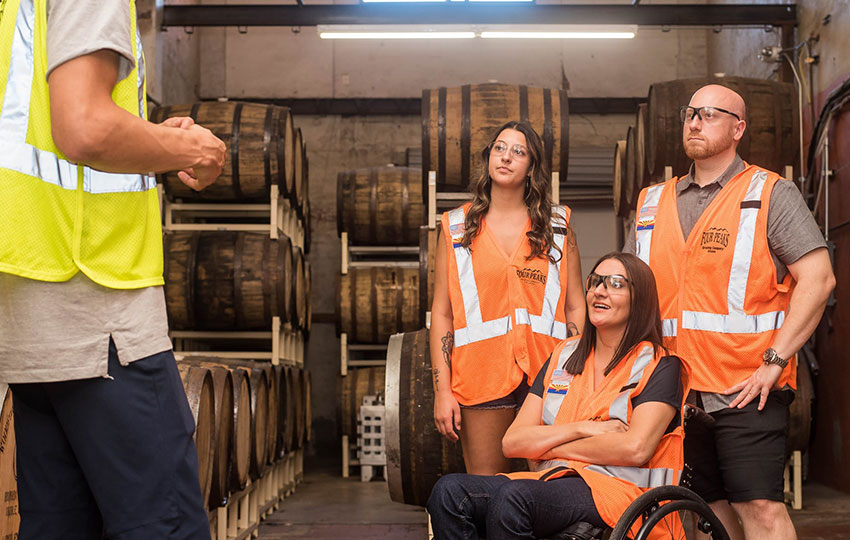Work-based learning (WBL) is an educational strategy that provides students with real-life work experiences where they can apply academic and technical skills and develop their employability.” It is a series of educational courses that integrate the school or university curriculum with the workplace to create a different learning paradigm. “Work-based learning deliberately merges theory with practice and acknowledges the intersection of explicit and tacit forms of knowing.
Some enterprises, particularly the large ones, have their own training workshops conducted by the HR managers or specialists in the field, and employees take time to attend training sessions. However, there’s need to involve different groups of people in this educational procedure, like people with disabilities.
The promotion of inclusive education and lifelong learning for students and learners with disabilities and special needs is one of the priority areas set up by the European Disability Strategy 2010-2020. Work-based learning seems to be a nice way to achieve the social inclusion of the people with disabilities as well as involve them actively in the work procedure, by exploiting their talents and advancing their existing or acquiring new skills. “Work-based learning experiences have been shown to be one of the strongest predictors of adult employment success for students and youth with disabilities”[2].
Benefits of Work-based learning experiences for the individual include:
- Fostering self and career exploration
- Developing positive work habits and attitudes
- Assessing abilities and strengths
- Expanding professional networks
- Becoming better informed to make decisions before accepting a job offer
However, for making this happen, there’s the need for experienced people who will facilitate the placement procedure of this group of people through Work-based learning. Furthermore, placement companies need to be prepared and the workplace appropriate (for example accessible, healthy and safe) for hosting the new workforce.
In Institute of Entrepreneurship Development we believe that it is necessary:
- to improve the knowledge and basic skills training of disabled people and provide them with skills to enter the open labor market.
- to increase the number of working people with a labor disability on the sheltered market by exchanging and sharing knowledge on methods and strategies on a large scale in EU, preparing these people for the open labor market. This concerns skills training, and connecting and motivating employers.
For this reason, we are part of “Skills+: European Skills Competition for people with a labor disability” project. The aim of the project to share good practice among (new) partners in establishment of sustainable and mutually beneficial relations between people with a labor disability and small and medium enterprises (SME’s) and to increase the employability of this target group by a smoother and effective move to work transition through Work-based learning.

